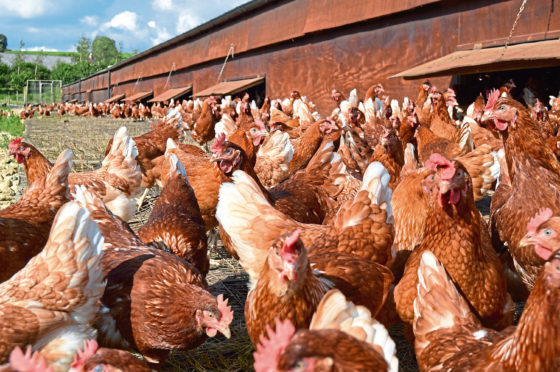Poultry farmers and bird keepers are being urged to remain vigilant for signs of avian influenza after a second case of the disease was found on a farm in Cheshire.
The latest case at the farm near Frodsham, which produces hatching eggs, follows a case at a small commercial premises near Deal in Kent.
Defra said both cases were unrelated – the Cheshire case was the H5N8 strain of avian influenza, while the case in Kent was the H5N2 strain.
It said all 13,000 birds at the Cheshire farm will be humanely culled to limit the spread of the disease, and 3km and 10km temporary control zones have been put in place around the infected site.
“Immediate steps have been taken to limit the risk of the disease spreading and all remaining poultry at the farm will be culled,” said UK chief veterinary officer, Christine Middlemiss.
“Bird keepers should remain alert for any signs of disease, report suspected disease immediately and ensure they are maintaining good biosecurity on their premises. We are urgently looking for any evidence of disease spread associated with this farm to control and eliminate it.”
Defra said a detailed investigation was under way to determine the source of this outbreak.
It urged all poultry keepers to take steps to protect their birds against the threat of bird flu, which can be spread by wild birds migrating from mainland Europe during winter.
NFU Scotland policy manager for animal health and welfare Penny Middleton said: “All possible steps must be taken to ensure that poultry, and other captive birds, are protected against contact with wild birds.”
She urged farmers to avoid the transfer of contamination into and between premises, and to minimise the movement of people, vehicles and equipment into areas where captive birds are kept.
Ms Middleton added: “Discourage wild birds from using free range areas through the use of wild bird-scarers, decoy predators, and/or netting smaller range areas.
“Keep good records of visitors and vehicles coming on the unit and regularly check the health status of your birds, observe them closely and report any signs of disease to your vet.
“Whether housing birds or not, all keepers should take all practical biosecurity steps to prevent infection.”
